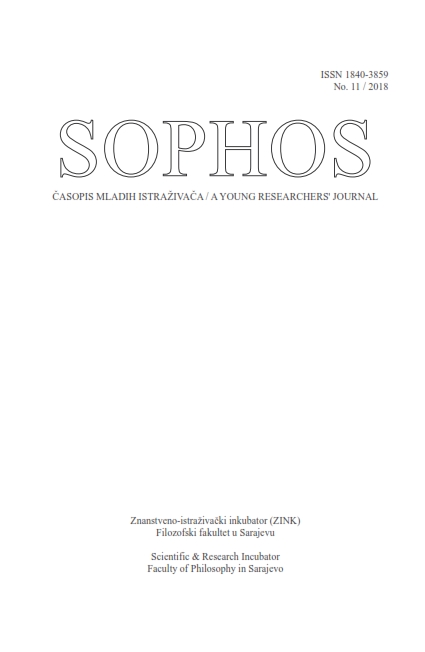Dekartova teistička metafizika
Descartes’ Theistic Metaphysics
Author(s): Vladimir LasicaSubject(s): Metaphysics, Epistemology, Theology and Religion, Early Modern Philosophy, Existentialism, Philosophy of Religion
Published by: Filozofski fakultet u Sarajevu - Znanstveno-istraživački inkubator
Keywords: Descartes; subjectivity; God; world; certainty;
Summary/Abstract: In this paper I defend an idea that the proof for God’s existence in Descartes represents the most important part of his metaphysics, i.e. of his entire philosophy. Ability to prove God is for Descartes the only way to overcome radical scepticism, which is based on the ontological gap between the mind and the world. Descartes confronts scepticism with the idea that all knowledge begins with the self-evident non-provable premises. The starting point is his “cogito, ergo sum.” This is the basic and intuitive undeniable truth that is evident from the thinking subject alone. Still, the remaining problem is how the self-evidence of the subject implies the existence of the world of objects? Descartes’ solution is the foundation of a new theistic metaphysics based on the proof for the existence of God, which is established on the self-evidence of the subject: subject is able to prove God on the basis of his/her self-evidence alone. After the proof is established, God himself becomes the foundation for any conceptual certainty about the world.
Journal: Sophos- časopis mladih istraživača
- Issue Year: 2018
- Issue No: 11
- Page Range: 95-111
- Page Count: 17
- Language: Bosnian

